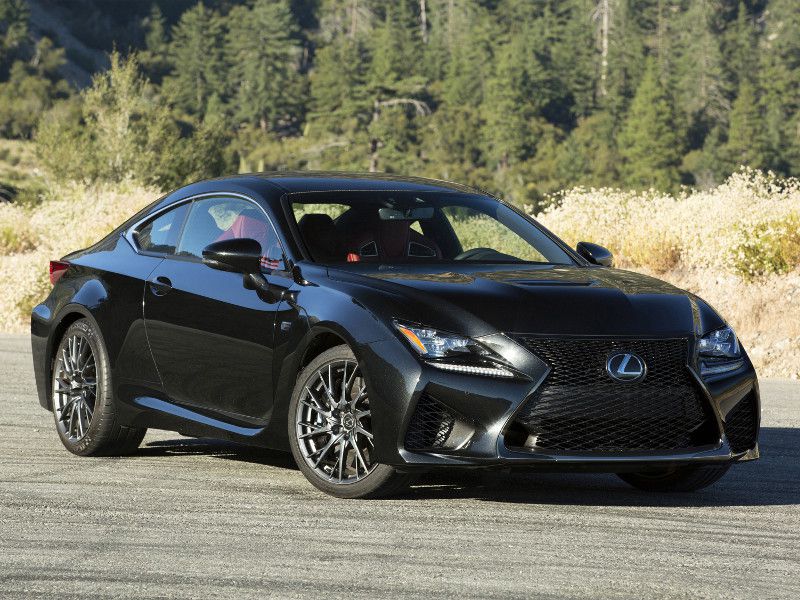Recent Articles
Popular Makes
Body Types
Lexus RC 200t vs 350 F Sport vs RC F Comparison Review
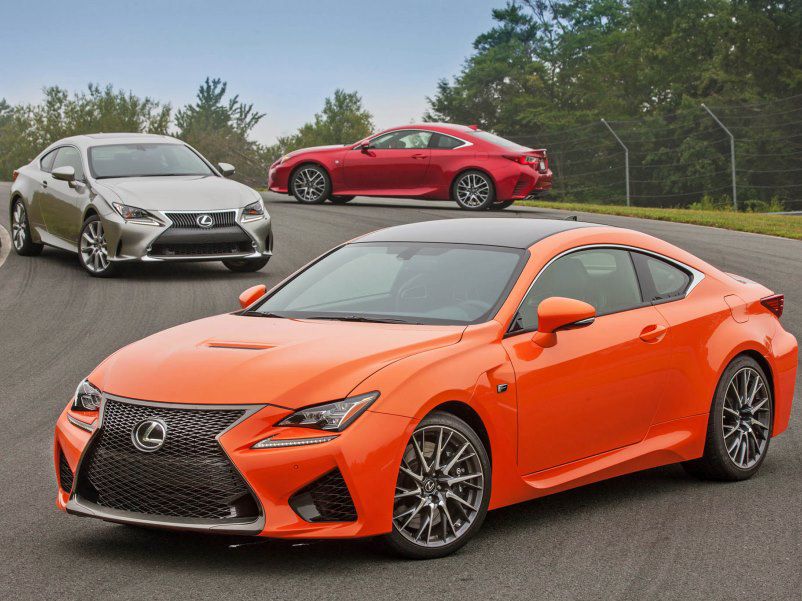
LexusRC200tvs350FSportvsRCFComparisonReview
Akio Toyoda is serious about making Lexus cool. In a recent interview with Automotive News, Toyota’s CEO said that Lexus must emphasize emotion, leaving utility to the Toyota brand. Thus, instead of developing the seven-seat crossover SUV that Lexus dealerships and customers want, the company has built a dramatic four-seat coupe which, as of November 2015, was selling at a slower rate than even the automaker’s entry-level, Prius-based, CT 200h hybrid.
A mash-up of re-tuned and fortified platform components sourced from the GS sedan, the IS convertible, and the IS sedan, the Lexus RC coupe is aimed at the Audi A5/S5, BMW 4 Series, Cadillac ATS, Infiniti Q60, and Mercedes-Benz C-Class Coupe. Extravagantly styled for the latest “L-Finesse” design idiom, the Lexus RC grabs attention, not all of it positive.
RC Lineup
Following its debut as the RC 350 in 2015, and in high-performance RC F guise halfway through last year, the RC lineup gains new turbocharged four-cylinder and lower-priced V6 all-wheel-drive models for 2016. Dubbed the RC 200t, the turbocharged version starts at just under $41,000 before adding any options, anchoring a lineup that rises to nearly $80,000 for a performance-tuned RC F with every option box checked.
To demonstrate how Lexus is building more emotional and enjoyable vehicles, the automaker invited us to Palm Springs, California, to sample its latest line of F Sport models and to run the racy RC F around the road course at Chuckwalla Valley Raceway. This is what I learned during brief stints behind the steering wheels of three different Lexus RC models.
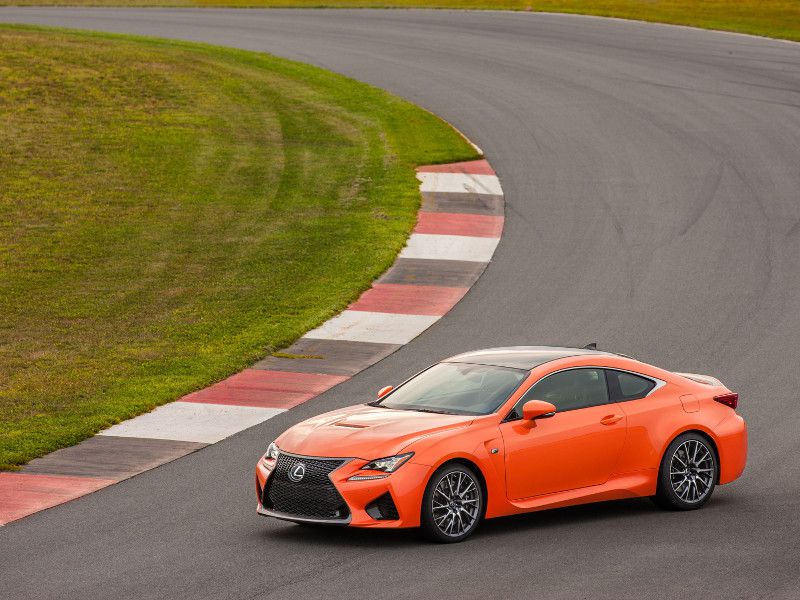
Lexus RC 200t F Sport
Equipped with a turbocharged, 2.0-liter four-cylinder engine, the new RC 200t is the most fuel-efficient version of Lexus’s coupe, rated to get 26 mpg in combined driving. The engine packs 241 horsepower and 258 pound-feet of torque, and uses an 8-speed Sport Direct Shift automatic transmission with paddle shifters to motivate its 3,737 pounds of curb weight. By the automaker’s stopwatch, it takes 7.3 seconds for the RC 200t to reach 60 mph, on its way to a top speed of 143 mph.
Choose the F Sport treatment, and the RC 200t gets unique exterior and interior design details, along with sport-bolstered front seats, a Sport S+ driving mode, an Adaptive Variable Suspension system with more aggressive tuning, performance braking components, revised stability and traction control system programming, and larger 19-inch aluminum wheels with performance tires. A limited-slip rear differential is a new option for 2016.
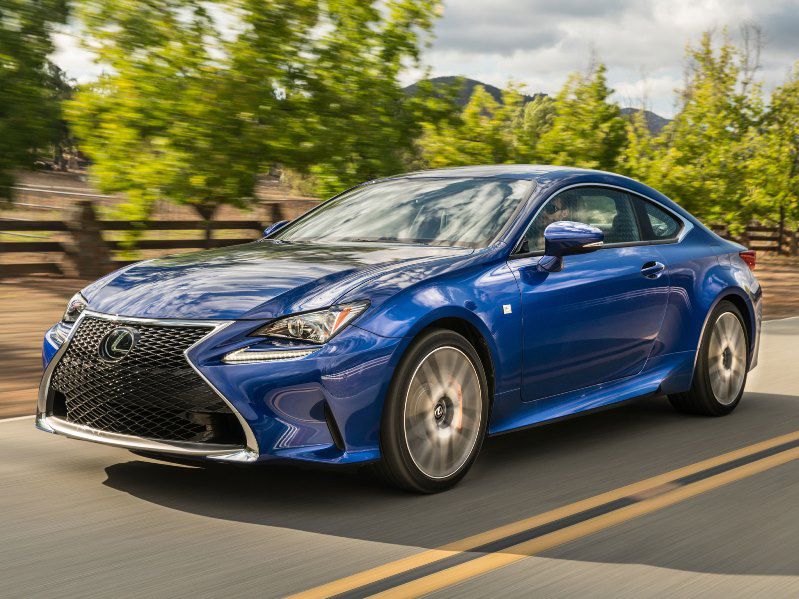
Lexus RC 200t F Sport Driving Impressions
Fire up the turbocharged four-cylinder, and the first thing you notice is an uncharacteristic engine note for a Lexus, slightly raw, a bit intrusive, but pleasantly tuned for a sporty sound in keeping with the car’s F Sport character. Set out for a drive and you’ll find that the RC 200t F Sport pulls decently in traffic, with peak torque available from just 1650 rpm. This car isn’t fast, but it is quick and is likely to please anyone buying the RC more for its styling than its performance.
Heading out of Palm Springs on spectacular Highway 74, the RC 200t revs in an expectedly refined manner, the two-liter turbo effortlessly climbing beyond 4,000 feet in elevation. The higher you go, the better the force-fed engine gets, shrugging off the deleterious effects of thinner atmosphere, making it a shame that all-wheel drive is not available with this engine. Imagine the fun to be had on the way to a Rocky Mountains ski resort!
Another benefit is the RC 200t’s 42:58 front-to-rear weight distribution. Without the heft of a V6 or V8 engine over the car’s nose, and in combination with its F Sport upgrades, the RC 200t has a crisper, lighter, and sharper feel as the driver threads the coupe along a twisty stretch of highway. In fact, the tighter the kinks in the road, the better this car is to drive.
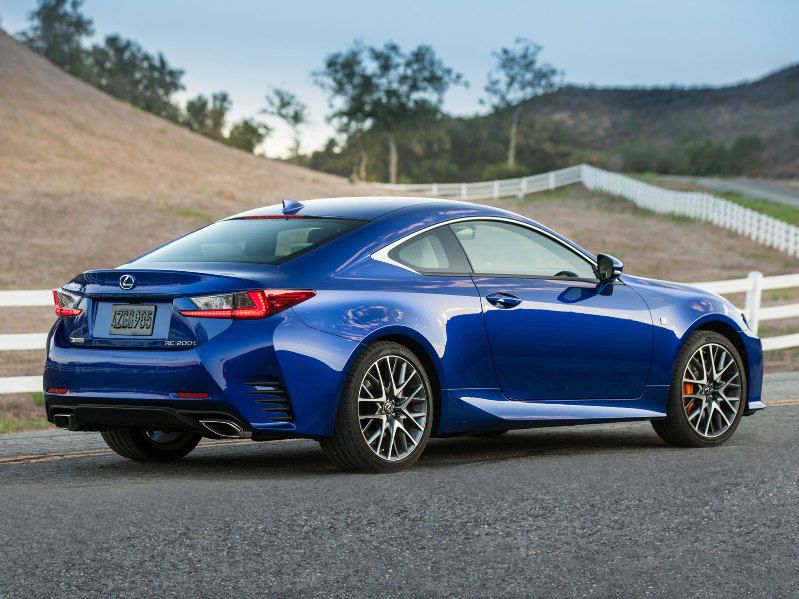
Lexus RC 350 F Sport
Equipped with a smooth and refined 3.5-liter V6, the RC 350 is rated to make 306 horsepower and 277 pound-feet of torque. While peak power is made at higher rpm compared to the RC 200t’s turbocharged four-cylinder engine, according to Lexus the RC 350 arrives at 60 mph a full 1.7 seconds sooner than the RC 200t. As the saying goes: There is no replacement for displacement.
On the same city and suburban driving route used for the RC 200t, the RC 350 responded with greater urgency and sounded terrific when revved. The 8-speed automatic transmission kicked down with authority, and the car felt more solid and secure on the road, likely because 54 percent of its weight is sitting on the front wheels, as opposed to 42 percent in the RC 200t.
As is expected, this more powerful version of the RC Coupe is also more expensive and less fuel-efficient. In F Sport guise, the price premium for the RC 350 amounts to $2,210, and fuel economy ratings fall from 26 mpg to 22 mpg in combined driving. Lexus also offers an exclusive Lexus Dynamic Handling upgrade for the RC 350 F Sport containing variable-ratio steering and rear-wheel-steer capability.
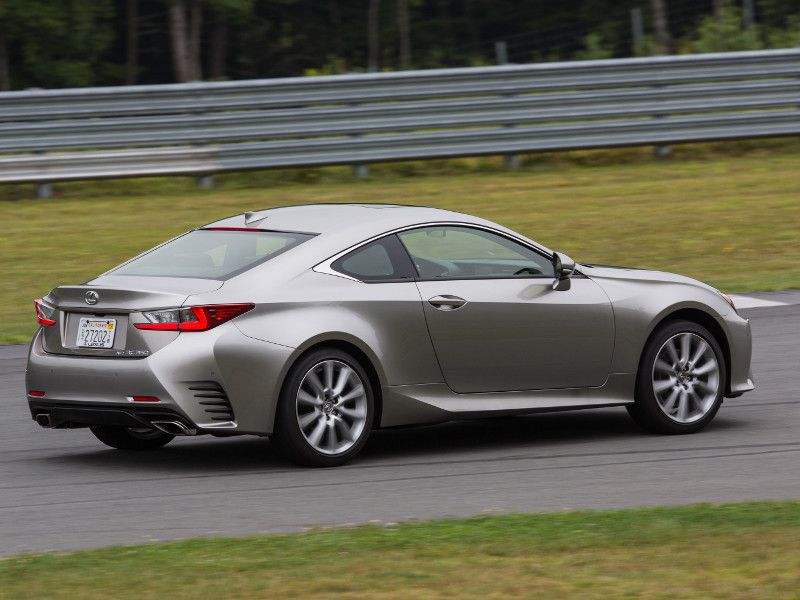
Lexus RC 350 F Sport Driving Impressions
Climbing into the mountains near Palm Springs, the RC 350 F Sport didn’t feel as nimble and athletic as the RC 200t F Sport. Plus, the RC 350’s normally aspirated V6 grew weaker as the car climbed higher in elevation. Losing interest in the drive, I flipped a U-turn, headed back down the grade, and made a beeline for the Interstate and the hour-long drive to the racetrack.
With the cruise control set at 80 mph, the RC 350 F Sport loafed along, seemingly in its element while crossing the stark desert landscape. Inside, I enjoyed the soft, premium leather upholstery, the impressive Mark Levinson surround sound audio system, and relative solitude due to the absence of wind, tire, and engine noise. But this would soon come to an end.
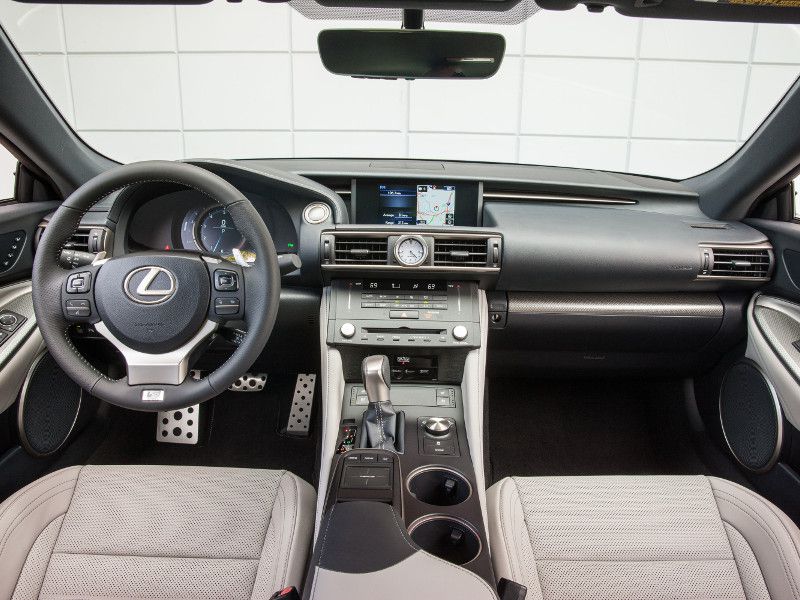
Photo by Lexus Media
Lexus RC F
Chuckwalla Valley Raceway is in the middle of nowhere, draped atop the scrubland a few miles north of Interstate 10 between Palm Springs and the California/Arizona border. Radiator Springs was bigger and better populated than the smattering of buildings at the Desert Center exit to the track.
Upon arrival, I checked out of the RC 350 F Sport and into the RC F, which is to Lexus what the M4 is to BMW. Lower, wider, longer, and less aerodynamic than other RC models, the 3,958-pound RC F generates greater downforce at speed and boasts structural reinforcements to make the car feel rock solid when driven in the manner for which it is intended.
A raised hood is required to clear the engine, a normally aspirated, Atkinson-cycle 5.0-liter V8 generating 467 horsepower at 7100 rpm and 389 pound-feet of torque at 4800 rpm. G-Force Artificial Intelligence shift programming is added for the 8-Speed Sport Direct Shift automatic transmission, and the RC F is equipped with a limited-slip rear differential, Brembo performance brakes, reworked steering and suspension tuning, revised traction and stability control programming, and a selection of lightweight forged aluminum wheels. This car even has an Active Sound Control sports exhaust system that pipes a mechanical melody into the cabin for an enhanced driving experience. The hardcore enthusiast might also consider the optional torque vectoring rear differential.
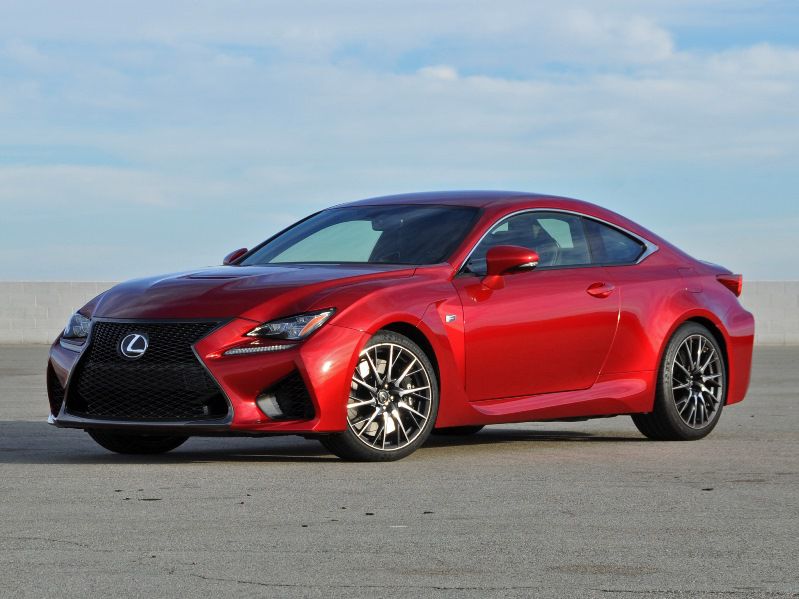
Lexus RC F Driving Impressions
Based on my experience, the RC F goes straight from the showroom to the track, no modifications necessary. The car needs more speed — Lexus claims 4.4 seconds to 60 mph and a top speed of 168 mph — but in comparison to the RC 350 F Sport it is brutally fast, akin to heavy artillery in a military arsenal.
Stiff, snugged down and utterly secured to the road, the RC F displays a minimum of body motion as its weight transitions in corners and through chicanes, the staggered-width Michelin Pilot Super Sport performance tires providing astounding grip. Inside the car, my hands clutch the fat steering wheel, the performance-bolstered sport seats gripping my oversized body as I combat the high g-forces this car can generate. After several hot laps, I pull back into the pit area, a big smile on my face. Having never experienced the Lexus LFA, I’m thinking that the RC F is the most exciting car from Toyota’s luxury brand that I’ve ever driven.
Point, aim, and shoot: the Lexus RC F delivers exhilaration.
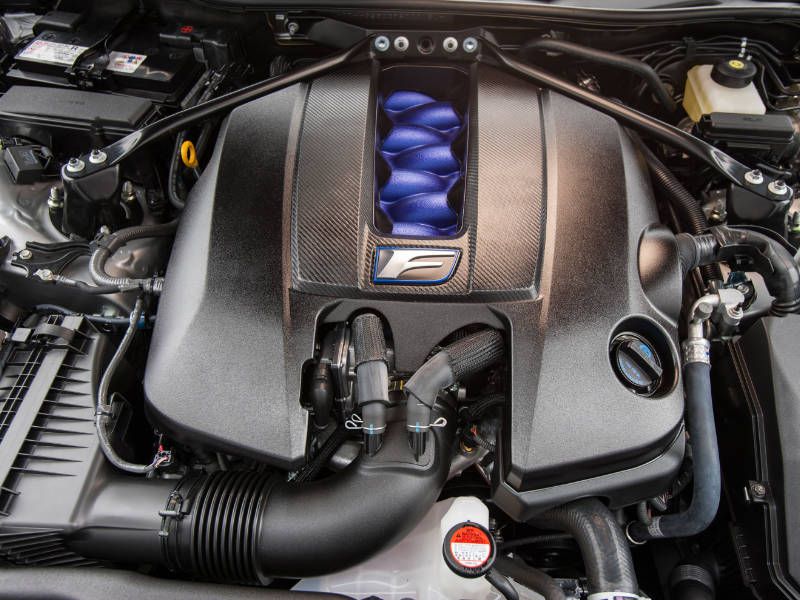
Photo by Lexus
Conclusions
Lexus wants customers who are guided by emotion rather than reason, and when it comes to the RC coupe, there are two ways to satisfy whatever lust and desire you might feel towards this car.
For daily driving, the RC 200t F Sport is the clear choice. It might not be fast, but it looks that way, and it is lots of fun to drive when the road ahead is long and winding. While the RC 350 F Sport doesn’t cost much more, and is definitely quicker, it simply wasn’t as enjoyable to drive on the routes I used for evaluation.
If money is no object, get yourself the Lexus RC F. Designed and engineered to go right from the showroom to the track, the RC F makes a visual and performance statement unmatched by any Lexus in history (aside from that limited-production LFA exotic I hope to drive someday).
